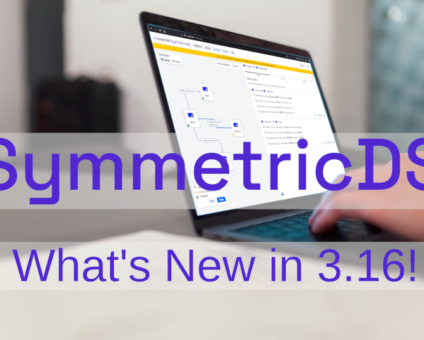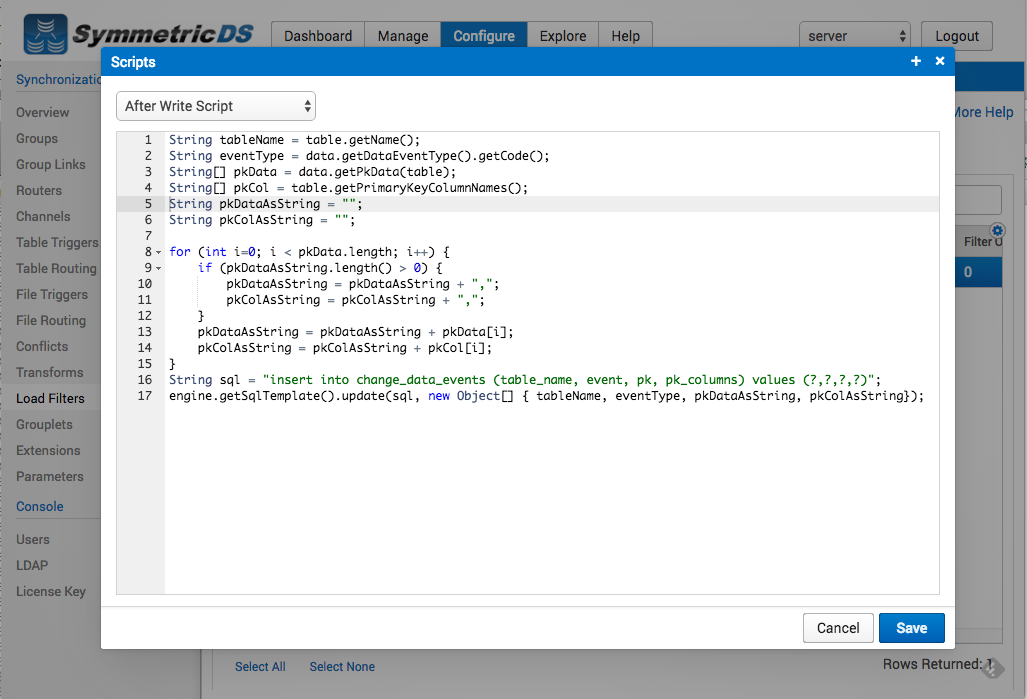Physical retail is still where the magic happens. According to new research by RSR, 85% …
![]()
Cloud-native POS platform for seamless omnichannel customer experience.
![]()
A single hub for all promotions campaigns.
- Omnichannel ExperienceCreate seamless customer experiences
- Device IndependencePOS agnostic to form factor or operating system
- Self-CheckoutDo more with fewer associates
- Mobile StoreLeverage POS from anywhere
- POS on the GoEnable associates to sell outside of the store
- Unified PromotionsStreamline and simplify promotion workflows
- CX ConnectAllow customers to engage with POS during checkout
- Composable CommerceCreate the store experience you want
![]()
The most advanced synchronization solution for databases and file systems.
![]()
Data configuration and batch automation across different disparate systems and vendors.
-
Data Replication
- Multi-tier DistributionReplicate thousands of remote locations
- Cloud Database ReplicationCapture live changes from on-premise to the cloud
- High Availability and Load BalancingEnsure 24/7 access to data and scale efficiently with demand
- Analytics and ReportingCapture the whole picture with real-time reporting
- Multi-masterMaintain consistency of data in a peer to peer setup
- Data WarehouseReplicate live and historical data to a warehouse
- MigrationsConduct live data migration with no downtime
-
-
Data Integration
- Master Data ManagementChanges propagate across the entire system, allowing you to maintain a centralized view of all parts of your core business entities.
- Application IntegrationReduce dependencies, complexity, and risk to build a high-performance, data-driven application.
- Web ServicesIntegrate multiple systems using web services or build a business application using a service-oriented architecture.
- Data WarehouseIntegrate disparate data from multiple systems so you can transform data for better business intelligence and reporting.
- Data MigrationConduct live data migration during critical server replacements, storage upgrades, and data center relocations—with no downtime.
- ImplementationIntegration consultants help design, develop, and deploy an implementation of our products.
- DevelopmentThe product developers can add features, enhance existing functionality or build support for new platforms.
- TrainingEngage our experienced training resources to gain in-house knowledge and expertise on Jumpmind products.
- SupportLeverage product engineers to resolve issues, fix defects and provide updates or patches.
- Proof of ConceptDetermine the feasibility of implementing our products and get answers to your questions quickly.
Beyond the Hype: What Retailers Really Want from Tech in 2025 Europe’s biggest retail conference …
What a fun week it was for women from across the country who came together …
View all Blog Posts
The new release of SymmetricDS Pro 3.16 data replication software simplifies setup, improves performance, and …
Sybase ASE (more recently known as SAP Adaptive Server Enterprise), announced its end of mainstream …
Azure Blob Storage has become a popular option for storing files in the cloud. And …
View all Blog Posts
Jumpmind Powers Point of Sale and Promotions Execution for Landmark Retail, One of the Largest …
Retail Technology Leader Jumpmind to Enable Mobile Point of Sale and Inventory Management for DTLR/VILLA …
The retailer is charting its next chapter with retail technology modernization to power inspired omnichannel …
View all Customer Stories
43 percent say handling online order returns in-store is a top challenge, and that increases …
After nearly a century in business, the legendary Canadian fashion retailer is retooling to streamline …
The Solution Addresses Modern Retail Challenges with Innovative Promotions to Captivate Inflation-Weary Shoppers NRF 2024, …
View all Blog Posts
![]()
Cloud-native POS platform for seamless omnichannel customer experience.
![]()
A single hub for all promotions campaigns.
![]()
The most advanced synchronization solution for databases and file systems.
![]()
Data configuration and batch automation across different disparate systems and vendors.
-
Data Replication
-
-
Data Integration
-
Retail Retail trends, technology, and enhancing the customer experience
-
Data Thoughts on data matters, dialects, performance, and security
-
Customer Stories How Jumpmind impacts the businesses of our clients
-
Videos & Webinars Watch on demand demos, reviews, and tours of our products
-
Company News Get the scoop on Jumpmind's growth and impact
View all Blog Posts
Capture all change events into an event table

In addition to replicating data changes from source to target you may also wish to populate a table on the target to monitor all events. In this blog I will show you how to create a simple load filter that will record all changes captured by SymmetricDS into a simple audit table.
This table will hold just four columns to record the change.
- Table Name – The table the change occurred on.
- Event Type – Single character to represent Inserts(I), Updates(U), or Deletes(D).
- Primary Key Values – The value of the primary key for the row that was changed (comma separated if more than one).
- Primary Key Names – The name of the primary key column at the time of the change (comma separated if more than one).
First lets create the audit table on the target node by running the following SQL statement.
create table audit ( table_name varchar(50), event varchar(1), pk varchar(50), pk_columns varchar(250) );
In the SymmetricDS Pro web console go to the Configure->Load Filters screen
Create a new Load Filter of type BSH with the target table set to * so that all tables setup for replication will be filtered. You will also need to select the appropriate group link, remember the load filter will fire on the target node.
After saving the filter select the edit scripts button.
Select the “After Write Script” from the drop so that the script we will create will fire after each data event is processed.
Provide the following beanshell code to the text editor and hit save.
String tableName = table.getName();
String eventType = data.getDataEventType().getCode();
String[] pkData = data.getPkData(table);
String[] pkCol = table.getPrimaryKeyColumnNames();
String pkDataAsString = "";
String pkColAsString = "";
for (int i=0; i < pkData.length; i++) {
if (pkDataAsString.length() > 0) {
pkDataAsString = pkDataAsString + ",";
pkColAsString = pkColAsString + ",";
}
pkDataAsString = pkDataAsString + pkData[i];
pkColAsString = pkColAsString + pkCol[i];
}
String sql = "insert into change_data_events (table_name, event, pk, pk_columns)
values (?,?,?,?)";
engine.getSqlTemplate().update(sql,
new Object[] { tableName, eventType, pkDataAsString, pkColAsString});
Save your script and your all set to start recording change data events into your new table.























